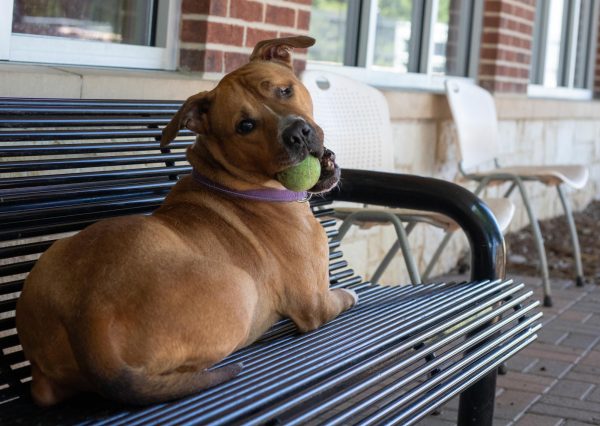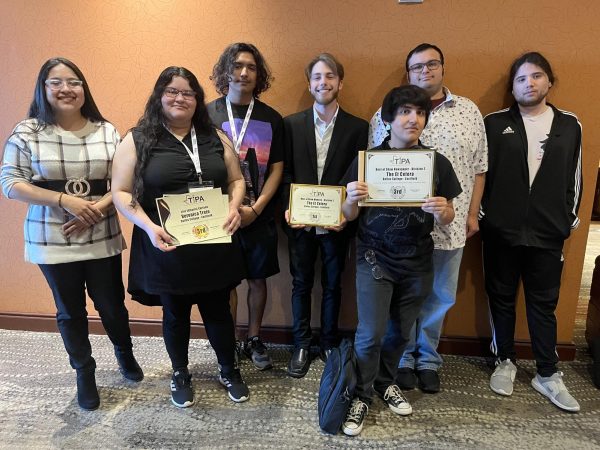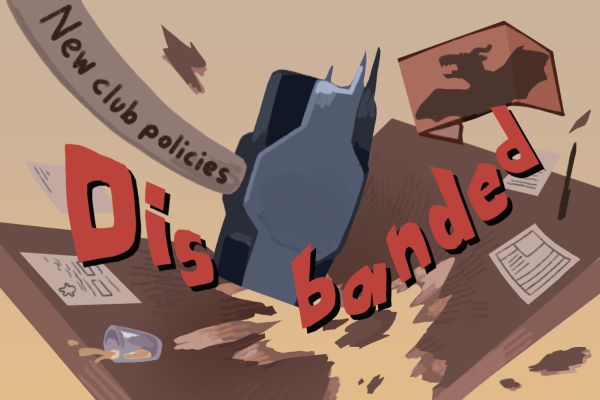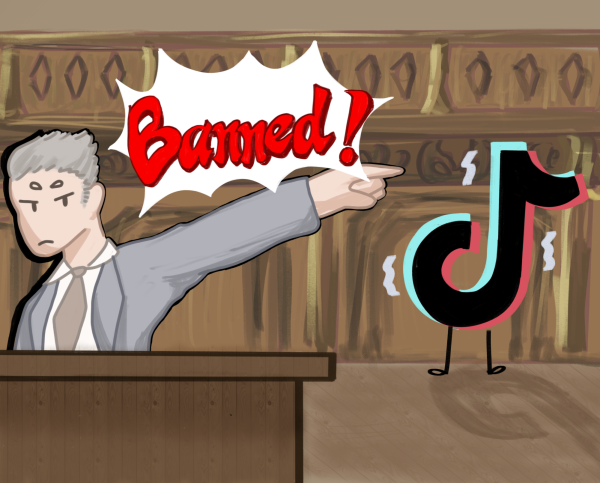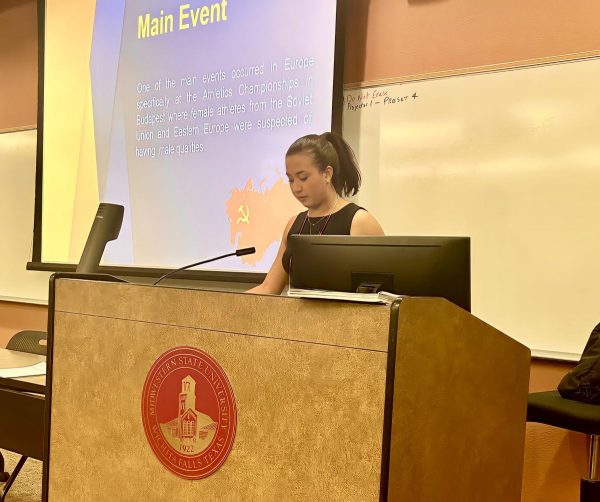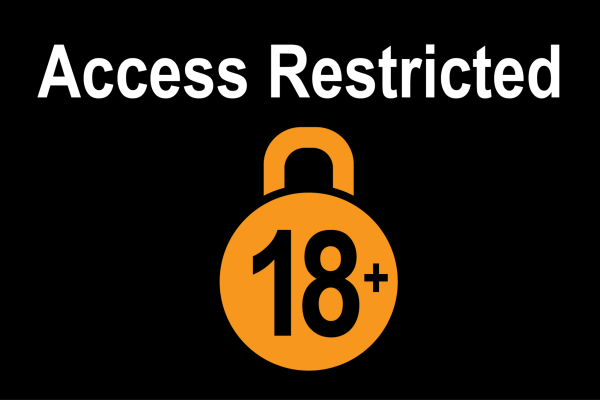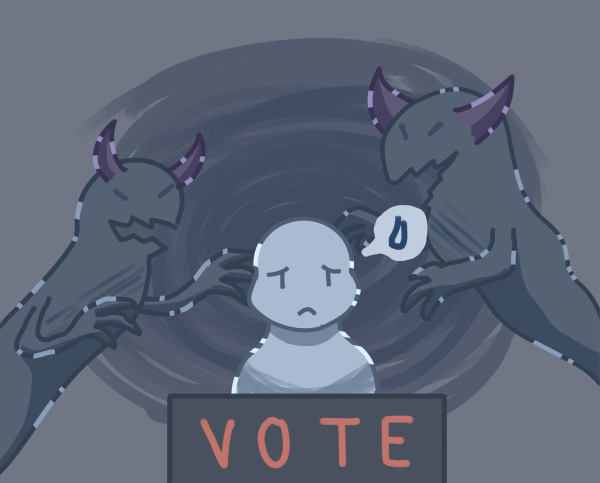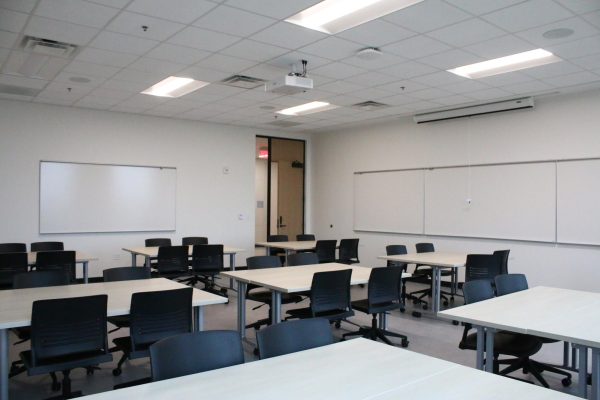Game on: Dallas College plugs in to competitive esports
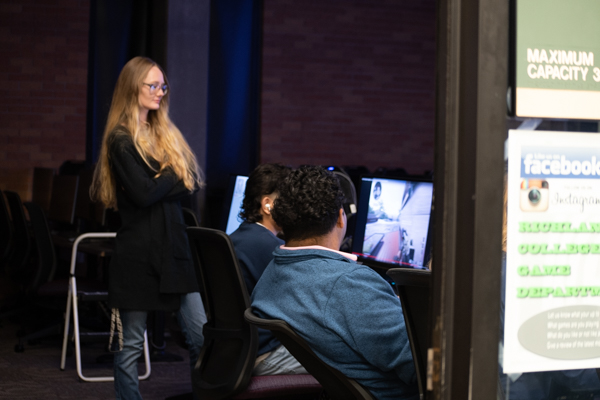
Coach Skylar McCort, left, watches players train at Richland on Nov. 22. Photo by Chantilette Franklin/The Et Cetera
November 30, 2021
Fernando Velazquez, a history major, was getting ready to register for the fall semester when he got an email informing him about Dallas College’s esports program. He applied the same day.
“It’s an opportunity that I never had before,” Velazquez said. “[And] an experience that I’ve always wanted.”
This is the first semester that Dallas College has had an esports program. Dallas College athletic director Saadia Jones said the program is a “work in progress.”
Jones said there will eventually be a dedicated space with computers and gaming equipment on each campus for esports, but this semester the students have been practicing and competing in scrimmages from home.
The spaces at Cedar Valley and El Centro were completed on Nov. 19, and Jones said she anticipates the other campuses will have their spaces ready by the start of the spring semester.
Esports has exploded in popularity in recent years with about $1 billion in revenue for 2021, according to Statista.
The National Junior College Athletic Association Esports was founded in 2019, and now has over 60 two-year colleges competing in the program, according to its website.
Esports coach Skylar McCort said having those spaces available is going to be vital for spring competitions.
“When we do competitive tournaments we will have to be on campus so that we know there’s no cheating or anything like that,” McCort said. “[And] know that we’re using proper equipment that hasn’t been tampered with.”
McCort, who is also a part-time gaming coach for the Dallas Mavericks, is one of two coaches who have been hired so far. She and Anthony Inzunza work with the 45 students who are enrolled in the program.
McCort said coaching virtually has its pros and cons.
“It’s good for getting everybody there and it works better on their time schedule,” McCort said. “It is a little more difficult on the coaching side because you do need to be able to review each students’ video and know what they’re doing and kind of single out which student needs help in which area.”
McCort said the teams have had practice scrimmages with other colleges, but they won’t compete until spring.
Right now, there are seven games that the students are practicing: “Rocket League,” “Super Smash Bros.,” “League of Legends,” “Valorant,” “Call of Duty: Cold War,” “Overwatch” and “Apex: Legends.”
Velazquez is on the League of Legends team but said he might try out for Apex also.
League of Legends is in the multiplayer online battle arena genre while Apex is an online multiplayer battle royale game.
Jones said students can play in up to three games.
“The only thing we ask is that students time manage and also pay attention to their academics first,” Jones said.
Velazquez said the semester has gone well, but he is looking forward to playing on-campus at Richland this spring. He said making callouts have been the hardest thing about playing virtually.
In gaming, players use callouts to relay strategies and other information to their teammates.
“We’re not all next to each other or in a proper voice channel where we’re without any disruptions,” Velazquez said. “But other than that, there hasn’t been really any problems.”
This is Velazquez’s last year at Dallas College, but he plans to keep taking one class per semester at Richland even after he transfers so he can keep playing esports with his team.
He said he hopes to get scholarships through esports that will help with his future schooling.
“I see this as a chance,” Velazquez said.



